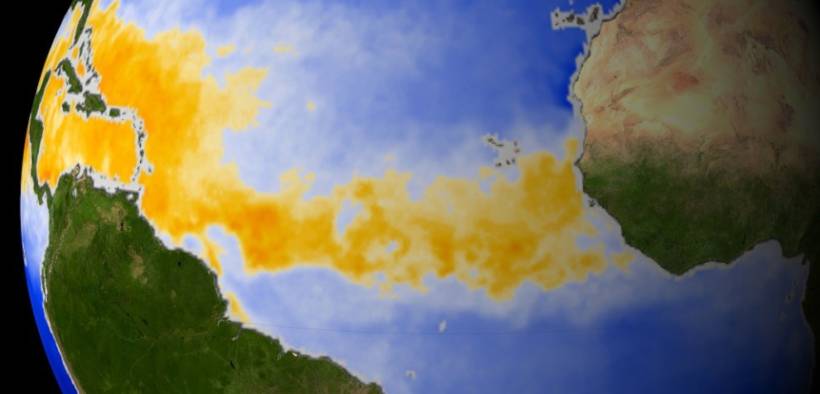The IPCC, True or False?

Anthropologist Carl Schuster once wrote, “Nobody has the vaguest notion of what this world is really like; the only thing that can be safely predicted is that it is very different from what anybody supposes.”
My December 1 climate crisis presentation at local library went well. Not perfect (it’s never perfect), but well enough for me to witness heads nodding in concurrence. And a spirited Q&A session after I closed my presentation with an animated video tribute to 16-year-old Greta Thunberg. She, whose passionate and powerful voice challenged the United Nations Climate Action Summit in New York this past September with this refrain, “How dare you!”.
“My message,” she said, “is that we’ll be watching you.”
“This is all wrong. I shouldn’t be up here” Greta said. “I should be back in school on the other side of the ocean. Yet you all come to us young people for hope. How dare you!
“You have stolen my dreams and my childhood with your empty words. And yet I’m one of the lucky ones. People are suffering. People are dying. Entire ecosystems are collapsing. We are in the beginning of a mass extinction, and all you can talk about is money and fairy tales of eternal economic growth. How dare you!”
She closed her impassioned speech with “We will not let you get away with this. Right here, right now is where we draw the line. The world is waking up. And change is coming, whether you like it or not.
“Thank you.”
The bottom line of my Arms Library presentation was this: there are only two climate crisis possibilities. They are that the IPCC (Intergovernmental Panel on Climate Change) projections are either (1) true or (2) false.
I asked which action our country (the government and the people) should take; (1) a massive, enormously expensive grappling with the climate crisis ala a Marshall Plan type national effort or (2) no action, thus saving the enormous national expense.
Then my follow-up question was; what might the outcomes of these two choices be?
The outcomes of taking massive action if the IPCC projections were wrong would be an enormous economic mistake so huge that we might suffer a national recession leading to an international depression.
On the other hand, if the IPCC turned out to be right, massive action would have preserved a livable planet. A collective sigh of relieve, gratitude and new hope in the realization that, as Naomi Klein has written, “we are all alive at the last possible moment when changing course [resulted in] saving lives on a truly unimaginable scale.”
Now, what if the IPCC projections were false and we took no action, the 1% and the rest of us taxpayers would rejoice on having taken no action, avoiding stringent regulations and not stressing the economy. Wall Street could continue to reach for the limits to growth.
However, if the IPCC projections were true, even the minimum outcome would be worse on an unimaginable scale. The limits to growth and the planet’s capacity to endure humankind’s indiscriminate lifestyle would have been met.
I think my existential malaise arises in response to Greta’s so, so clear connection with the environment in which we all live, and that within the framework of divorce that Barry Lopez so eloquently speaks about in a stunning interview in an interview in the recent Sun Magazine.
Lopez is the American author, essayist, and fiction writer whose work is known for its humanitarian and environmental concerns. He won a National Book Award for Nonfiction for his book Arctic Dreams.
In Horizon, his latest compelling book, he is talking about humankind’s loss of connection with the “nonhuman” world. “If you can imagine a divorce,” he said, “in which only one member of the dyad – modern humanity – made the decision to create a breach, and then enforced it, you can begin to understand what the growing malaise in human culture is about. It occurs to humanity that it has lost its spouse. That’s metaphorical, of course,” Lopez said.
“But if you imagine what happens when divorce is forced on just one person, then you can begin to understand why traditional people are reluctant to make that same adjustment. They don’t want the breach. They see the destructive injustice. Why accept a separation from all the rest of creation? Everybody I spoke with in villages across the Arctic in the seventies and eighties, when I asked them to offer me adjectives for people in my culture, the one word I heard repeatedly was lonely. They see us as deeply lonely people – and one of the reasons we’re lonely, if you agree with that, is that we’ve cut ourselves off from the nonhuman world, and have called this ‘progress.’”
Maybe that’s what I am feeling, an existential loneliness. I am reflecting upon my own lack of truly intimate connection with the earth and with all of the non-human species it supports and that supports the earth in return. A kind of intimacy I experience in a couple of the writers in our local writer’s group and in the writing by Lopez and anthropologist Carl Schuster. Schuster once wrote, “Nobody has the vaguest notion of what this world is really like; the only thing that can be safely predicted is that it is very different from what anybody supposes.”
Schuster was raising an objection to the sometimes-condescending positions scientists and academics take in speaking about reality and human fate. He was advocating for the sort of emotional and spiritual relationships all cultures experience in the encounters with their places. And with many of these cultures that still enshrine an understanding of what is, finally, beyond understanding.
In my library presentation, I quoted Jerry Mander (again) from his 1991 book In the Absence of the Sacred: The Failure of Technology & the Survival of the Indian Nations. Mander sees a close connection between the advances of modern technological society and the plight of indigenous peoples around the world. Since the dawn of the technological era, he says, “the only consistent opposition has come from land-based native peoples. Rooted in an alternative view of the planet, Indians, islanders, and peoples of the North have not only warned of the dangers of technology, they have also been its most direct victims.” According to Mander, we are in the midst of an “epic worldwide struggle between the forces of Western economic development and the remaining native peoples of the planet, whose presence obstructs their progress. The ultimate outcome of this conflict is not hard to predict given that the technological juggernaut inevitably chews up the societies that warn that this path will not work.”
“Worst of all,” Mander concludes, “these are the very people who are best equipped to help us out of our fix, if only we’d let them be and listen to what they say.”
42 years ago in his earlier book Four Arguments for the Elimination of Television (1977), Mander wrote about the capacity of television to shape our thinking. What he wrote well defines at least one aspect of climate change confusion: “artificial environments deprive us of a direct knowledge of nature. Our knowledge is limited to the created environment…”
Ask yourself how many millions of people today live in created environments that isolate them – us – from nature? Mander continues: “In free enterprise, value is assigned to producible goods and services. Thus, things are considered to have no value if they cannot be made productive, i.e. if they cannot generate revenue. Undeveloped land is non-productive; uninhabited desert is non-productive; uncut forests are non-productive. Therefore,” Mander continues, “the economic system itself has a vested interest in turning the natural into the artificial; anything less outrages the capitalist. Open space, untamed animals, and untapped minerals are searched out and transformed, if only to the temporary benefit of the transformer and the long-term liability of society. The profit motive tends to be short-term and short-sighted. Scarcity is valued because it drives up profits. It is not to be overcome; it is to be taken advantage of: it’s all about private enterprise, and it’s all about now. The next generation will have to pick up the pieces of what we leave behind; it’s their problem.”
Enter Greta Thunberg and the world’s youth.







